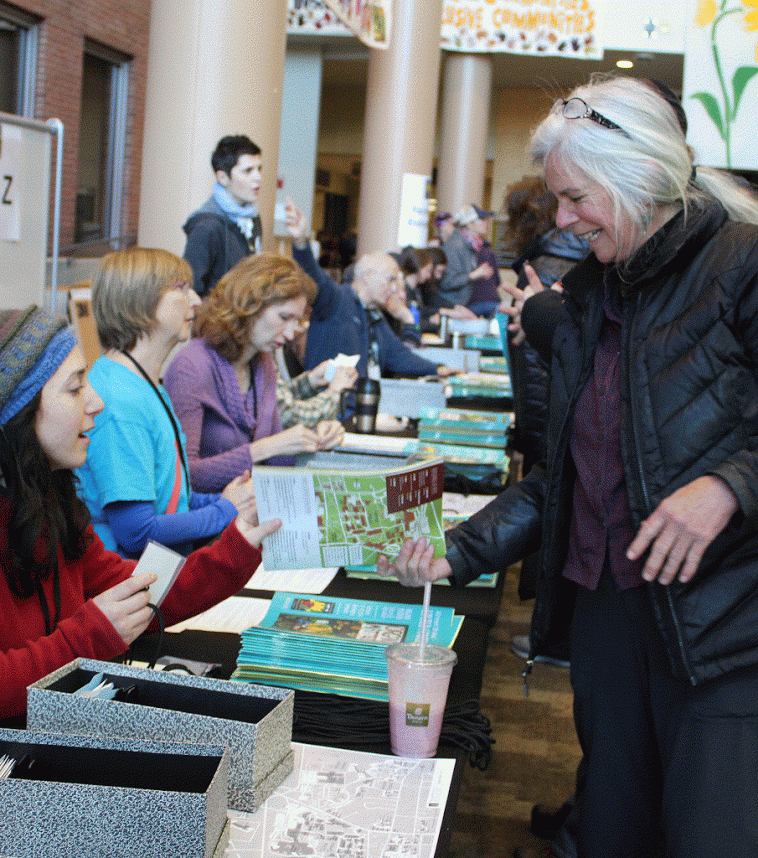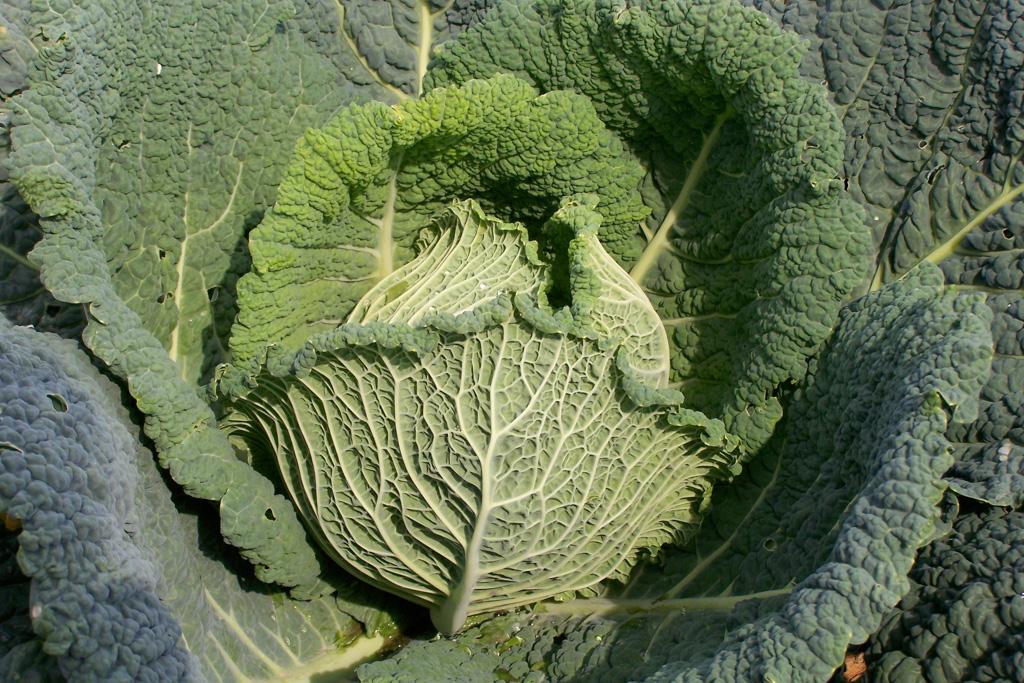This article is reprinted with permission by Lancaster Farming
On February 15th, 16th, and 17th, nearly 1,200 people gathered to celebrate their interdependence during the Northeast Organic Farming Association of Vermont’s (NOFA-VT) annual winter conference in Burlington, Vt.
“Celebrating our Interdependence” was the conference theme this year, and it was evident during workshops, presentations and speeches.
“Organic farmers understand that the health of the land is measured by the relationships in the ecosystems: farmers with soil, soil with fungi, fungi with plants, plants with pollinators, pollina-tors with eaters, (and) eaters with farmers,” NOFA-VT Executive Director Grace Oedel wrote as part of her introduction in the conference program. “The stronger the relationships, the more resilient the system. We all need each other.”
Oedel was six months into her new position as executive director when she gave her open-ing remarks at the conference on Feb. 15. She succeeds Enid Wonnacott, who was the beloved ex-ecutive director of NOFA-VT before she died in January 2019.
“I’m humbled and encouraged by the strength, warmth and welcoming of this community,” Oedel told a packed fourth floor auditorium at the University of Vermont (UVM) Davis Center, the site of the conference.

Oedel said she asks herself, “What would Enid do?” She says, “I’m grateful for her guidance daily.”
NOFA-VT board member John Hayden presented the inaugural Spirit of Enid Wonnacott Award to four recipients: Andy Jones, of Intervale Community Farm; Suzanne Long, of Luna Bleu Farm; Jennifer Blackwell, of Elmer Farm; and Bonnie Acker, of Acker Arts.
Following the awards ceremony, keynote speaker Niaz Dorry, of the National Farm Family Coalition and Northwest Marine Alliance, discussed interdependence and why it is critical to food systems.
Dorry and the staffs of the coalition and alliance went on an “America the Bountiful” tour that connected them with food providers, farmers, ranchers, boaters, and business owners across the U.S. to learn about their joys and struggles to find interdependence in their communities.
Dorry’s life changed 25 years ago, when she was working for Greenpeace. At the time, she switched from organizing communities that were fighting for environmental justice to organizing fishing communities. She moved to Gloucester, Mass.
“At first, I thought, ‘How do you organize fish?’” she joked.
Right away, Dorry recognized that fishing communities were facing the same challenges and issues as farming communities.
“There is a difference between people who fish and people who extract seafood,” Dorry said. “Just like there is a difference between farms and agribusinesses.”
Dorry and her colleagues created a community-supported agriculture (CSA) model for fishermen. Now, their work spans North America; it is spreading into Europe, Australia, Mexico, and Canada.
Dorry’s work led to “The Declaration of Interdependence,” an emerging document that is gaining notoriety nationwide.
“I’ve been thinking about (interdependence) for most of my adult life,” Dorry said.
NOFA-VT conference organizers said they received positive feedback for weaving the “interdependence” theme into the 2020 conference. The conference offered more than 40 workshops and 55 exhibitors.
“I used to come to the NOFA conference, and then I stopped to go to larger shows, but now I’m going back to smaller shows,” said Manny Dutra, owner of Horticultural Professionals, a dis-tributor of products that enhance soil microbiology.
“This is my market,” Dutra said. “Organic farmers understand that you have to feed the soil microorganisms. It’s really the first step to soil health, and when you think about the economics of it, it’s a minimal amount of investment for the amount of gain you get.”
The organic sector is growing — far outpacing others in the national marketplace, according to Oedel. In 2019, NOFA certified 100 new farms just in Vermont.
“People are excited to be part of a movement that heals land and people at once, and they are interested in the idea that organic practices offer better markets for farmers while also providing important ecological services,” Oedel said. “As consumers connect the dots with practices, human and land health, the market grows. This is an exciting opportunity for Vermont’s agricultural economy.”
UVM junior Sydney Decker was excited to be at the conference. She is studying food sys-tems and is from Orange County, N.Y., where she grew up working on organic fruit and vegetable farms, as well as a Christmas tree farm.
“I’m hoping to meet people, learn new things and feel excited to be alive and going to work in agriculture,” Decker said.
Hopefully, Decker can make it to NOFA-VT’s 2021 conference, where the organization will celebrate its 50th anniversary. Plans are underway, Oedel said.

